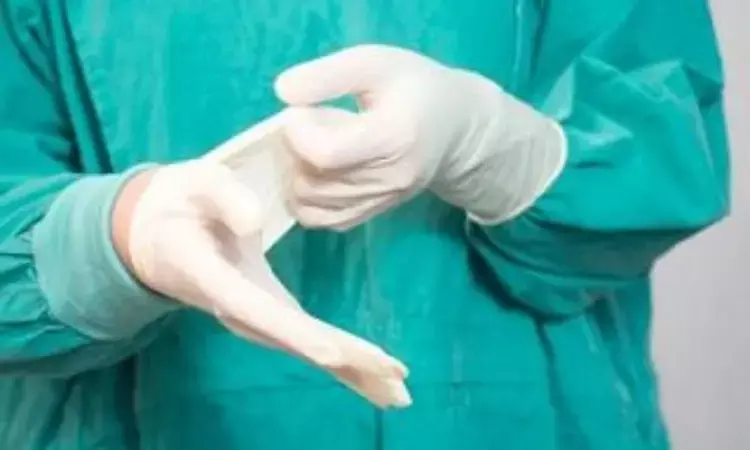- Home
- Medical news & Guidelines
- Anesthesiology
- Cardiology and CTVS
- Critical Care
- Dentistry
- Dermatology
- Diabetes and Endocrinology
- ENT
- Gastroenterology
- Medicine
- Nephrology
- Neurology
- Obstretics-Gynaecology
- Oncology
- Ophthalmology
- Orthopaedics
- Pediatrics-Neonatology
- Psychiatry
- Pulmonology
- Radiology
- Surgery
- Urology
- Laboratory Medicine
- Diet
- Nursing
- Paramedical
- Physiotherapy
- Health news
- Fact Check
- Bone Health Fact Check
- Brain Health Fact Check
- Cancer Related Fact Check
- Child Care Fact Check
- Dental and oral health fact check
- Diabetes and metabolic health fact check
- Diet and Nutrition Fact Check
- Eye and ENT Care Fact Check
- Fitness fact check
- Gut health fact check
- Heart health fact check
- Kidney health fact check
- Medical education fact check
- Men's health fact check
- Respiratory fact check
- Skin and hair care fact check
- Vaccine and Immunization fact check
- Women's health fact check
- AYUSH
- State News
- Andaman and Nicobar Islands
- Andhra Pradesh
- Arunachal Pradesh
- Assam
- Bihar
- Chandigarh
- Chattisgarh
- Dadra and Nagar Haveli
- Daman and Diu
- Delhi
- Goa
- Gujarat
- Haryana
- Himachal Pradesh
- Jammu & Kashmir
- Jharkhand
- Karnataka
- Kerala
- Ladakh
- Lakshadweep
- Madhya Pradesh
- Maharashtra
- Manipur
- Meghalaya
- Mizoram
- Nagaland
- Odisha
- Puducherry
- Punjab
- Rajasthan
- Sikkim
- Tamil Nadu
- Telangana
- Tripura
- Uttar Pradesh
- Uttrakhand
- West Bengal
- Medical Education
- Industry
Preoperative glycemic control critical for preventing surgical site infections in lower extremity fractures

Japan: A recent study published in the Journal of Orthopaedic Surgery and Research has shed light on the importance of continuous glycemic control preoperatively and postoperatively, for the prevention of surgical site infections (SSIs).
The researchers stated that "SSIs were significantly linked with diabetes mellitus (DM), particularly when patients had poorly controlled DM even though patients with DM had undergone preoperative glycemic control."
Preoperative SSIs are a vital complication to prevent in surgical treatment. Patients with diabetes have a higher SSI risk. Preoperative glycemic control is required. For patients with orthopaedic trauma, there is a limited duration of preoperative glycemic control because delaying operative treatment is complex. However, there is no clarity on whether preoperative glycemic control would reduce SSI risk in diabetic patients with lower extremity fractures.
Against the above background, Shinsuke Morisaki, Saiseikai Shiga Hospital, Ohashi, Ritto, Shiga, Japan, and colleagues aimed to investigate SSI rates among DM patients who had undergone preoperative glycemic control, compared to that of patients without DM in a retrospective cohort study. Secondarily, they sought to determine whether preoperative glycemic control would affect the development of SSIs between patients with controlled DM and patients with poorly controlled DM among patients with diabetes mellitus.
The researchers enrolled 1510 patients treated surgically for lower extremity fractures. Data collected were patient sex, age, body mass index (BMI), development of SSIs, history of diabetes, tobacco use, the length of surgery, the period between the day of injury and the operation, the presence of an open fracture and levels of blood glucose on admission and the day before surgery.
The study revealed the following findings:
· The rate of total SSIs was 6.0% among patients with DM and 4.4% among patients without DM.
· Multivariate logistic regression revealed a significant association between the development of SSIs and the presence of DM (odds ratio, 1.79).
· The results of the secondary study revealed that the rate of early SSIs was significantly higher in the poorly controlled DM group than in the controlled DM group (5.9% versus 1.5%).
· Multivariate logistic regression revealed that control levels of DM were not significantly associated with the development of SSIs.
"We have proven a significant association between the presence of DM, even when patients with DM had undergone optimization of preoperative glycemic control," the researchers wrote. "The duration of preoperative glycemic control may be inefficient for improving immune response in patients with traumatic injuries."
"Therefore, surgeons treating lower extremity fractures should maintain continuous glycemic control preoperatively and postoperatively to prevent surgical site infections," they concluded.
Reference:
Morisaki, S., Yoshii, K., Tsuchida, S., Oda, R., Fuke, T., & Takahashi, K. (2023). The role of preoperative glycemic control in decreasing surgical site infections in lower extremity fractures. Journal of Orthopaedic Surgery and Research, 18. https://doi.org/10.1186/s13018-023-04204-7
Dr Kamal Kant Kohli-MBBS, DTCD- a chest specialist with more than 30 years of practice and a flair for writing clinical articles, Dr Kamal Kant Kohli joined Medical Dialogues as a Chief Editor of Medical News. Besides writing articles, as an editor, he proofreads and verifies all the medical content published on Medical Dialogues including those coming from journals, studies,medical conferences,guidelines etc. Email: drkohli@medicaldialogues.in. Contact no. 011-43720751


